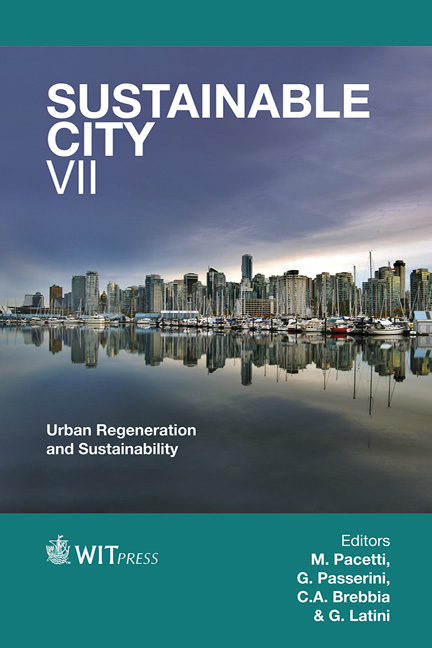New Urban Developments: Flood Control And LID – A Sustainable Approach For Urban Drainage Systems
Price
Free (open access)
Transaction
Volume
155
Pages
12
Page Range
469 - 480
Published
2012
Size
1,781 kb
Paper DOI
10.2495/SC120391
Copyright
WIT Press
Author(s)
M. G. Miguez, J. M. Bahiense, O. M. Rezende & A. P. Veról
Abstract
The relation between the water and the city is very close. Water is essential for city development, although urban floods may heavily affect city life. The urban layout defines new patterns for natural drainage system and changes the hydrological cycle, increasing peak discharges. Since the beginning of the Industrial Age, urban drainage systems were designed to face sanitation problems and adequate the system to the exceeding runoff. Traditional flood control projects tended to focus on improving discharge capacity. The concept of sustainability in urban drainage, however, implies that urban floods may not be simply transferred and the drainage systems have to be planned jointly with urban development. Storage and infiltration measures distributed over the basin and integrated with urban landscape should be introduced to reduce flood peaks. Following this line of action, the concept of low impact development (LID) may be a reference for urban drainage projects. This concept tends to produce built environments with minor hydrological changes, trying to preserve or recover natural flow conditions prior to urbanisation. This paper discusses urban flood problems, starting from a conceptual perspective and compares different possibilities for developing a new urban site. This way, a non-urbanised area in Rio de Janeiro City, Brazil, was chosen as case study to simulate different approaches for an urban expansion. A sustainable approach, considering LID concepts, allowed an economic and effective micro-drainage system design, at the allotment level, while it has improved the macro-drainage system response, in the basin scale. Keywords: urban site development, sustainable urban drainage, low impact development, mathematical modelling, MODCEL.
Keywords
urban site development, sustainable urban drainage, low impact development, mathematical modelling, MODCEL.





